
Gabrielle Aplin: “Giving yourself limitations, creatively, is a really good way of giving yourself a path to go down.”
The teenage internet sensation who burst onto the scene with her hit-laden 2012 debut album, returns with a new EP
Wiltshire-born singer-songwriter, Gabrielle Aplin first arrived on the scene in 2012 after building a massive fanbase by posting acoustic covers of songs on her YouTube channel. Just a year later she released her debut album English Rain, featuring her cover of The Power Of Love which soundtracked the John Lewis Christmas TV ad and reached No 1 in the UK. The album spawned a slew of Top 10 hits including Please Don’t Say You Love Me, Home, Salvation and Panic Cord, then – after an 18-month international tour – she racked up a further three No 1s worldwide.
Playing shows and going on tour all over the world had an impact on Gabrielle and fed into her 2015 sophomore album Light Up The Dark which displayed a maturing in Aplin’s sound with the anthemic singles like the title track and Sweet Nothing. She released her Miss You EP on her own label Never Fade Records in late 2016. A video of Aplin singing the lead track racked up a whopping five million views on Facebook and the EP has so far racked up an impressive 40 million streams.
The summer of 2017 saw Gabrielle Aplin return to the stage, completing a sold-out tour in Japan and performing at a number of UK festivals, before releasing the superb Waking Up Slow – the lead single from her recent EP Avalon. We caught up with Gabrielle while she was back at home, before the next phase of her stellar career kicked off…
You grew up now far from us in Chippenham, but you live in Brighton now. Do you do a lot of writing at home?
“Yeah, I live with my boyfriend who also writes songs, so we have a good collection of guitars. I like tuning my guitars to different tunings. I have a writing room as well, with my Nord and plugins and stuff, but generally I don’t really go in there unless I have something that I need to record. It’s a functional space, but it’s definitely very zen – mood lighting and incense – that’s very important to me!”
Is songwriting something you do habitually every day?
“Noodling around and coming up with things? Yeah, I just have to do it. It’s just one of those things I do. I can’t walk into my kitchen without walking past an instrument and I’ll stop and play them.”
You’re only 25 years old, but tell us about your earliest memories of songwriting?
“When I first started writing, it was more writing lyrics and then I learned an instrument. I was about 11 or 12 when I remember putting things together, but not seriously, then I started covering songs to just learn about songwriting structures and learning what I loved about them. When I was about 14 I started making my own.”
What songs do you think you learned a lot from?
“I was learning a lot of Joni Mitchell songs and a lot of the things that were in the charts as well. I was really interested in contemporary songwriting and how it changed throughout the decades. I’m a big fan of Nick Drake and Crosby, Stills & Nash, and that kind of 60s singer-songwriter, story-telling thing, but I love pop song structures that have kind of stayed the same. I was listening to The Carpenters, and a lot of that kind of stuff, but I remember being obsessed with Perfect Day by Lou Reed because it felt like three songs in one – I was really interested in the intricacy of it.”
So did you pick up an acoustic guitar first?
“It was piano first, actually. I was able to teach myself chords, but it took me a lot longer to know how the guitar was laid out. That was good, in some ways, because when you’re limited I feel you make something out of what you do have. Giving yourself limitations, creatively, is a really good way of giving yourself a path to go down.
“So yeah, guitar took me a little while longer, but it’s definitely my most confident writing tool. But, at the same time, I get very used to that. My home piano is difficult to write on but I can go and sit on someone else’s piano and just come up with something. So really subtle things like tone and size, and the room even, definitely changes a lot of things.”

Gabrielle: “Once I realised I was able to put out my own music … I was like, ‘Okay, this is the thing that I can do now.’”
Are there any other examples of creative limitations that you’ve employed recently?
“I guess I’m more comfortable with exploring. I usually sit down at an instrument and write something as a song, and try to tell a story, but I’ve also enjoyed starting with a drum loop or a particular sound and seeing where that takes me.”
What was the turning point when you went from tinkering around with songs to becoming a fully fledged singer-songwriter?
“I was definitely writing tunes without any agenda or goal to release them or anything, I was just building up a collection of songs, I suppose. Then I met my manager, James [Barnes], and we decided to set up the label that we run, which at that time was just an entity to release my music on.
“I recorded them simply, with the help of a friend, and they eventually became an EP. We put out music independently and started putting tours on sale, around the UK, and it kind of grew from there. Once I realised I was able to put out my own music, independently, was the real turning point to me because I was like, ‘Okay, this is the thing that I can do now.’”
Was that something you decided to do because it was new, or had the trend of starting your own label already started by then?
“It didn’t really feel like there were loads, so it felt like we were just doing the thing that suited us best. I wasn’t trying to get a record deal – I didn’t feel I had to have ‘one thing’ to get the next point, which was to release music. I just thought, ‘Okay so I have these songs and I feel like people would want to hear them.’
“I’d been putting out music online anyway, so there were people that would buy [my releases] and I want it to be heard. So I feel like it was just the next step or I could’ve just carried on writing aimlessly. Creatively, it’s always nice to get a project out, so then you can draw a line under it and start a new one.”
It was a pretty savvy decision, in hindsight.
“Yeah but I certainly wasn’t considering it as one!”
Do you still like being involved in the business side of music, or do you focus more on being an artist?
“No, I am really interested in it and so many other parts like the production, the video, the visuals and the press and marketing – I think it’s all very important and they slot together perfectly and become one big puzzle. All those different pieces are all important little cogs and I do get involved in it, and I enjoy it as well.”
In the early days of your first EPs, were you collaborating or was that more you writing on your own?
“Initially no, but I definitely met a few people that I then started to collaborate with. Not all of them ended up on those EPs, but it was really a good thing to experiment and see if I liked working with people. I wrote a lot with my friend Nick Atkinson and then he become a key part of my team, really.”
There was a big difference between English Rain and Light Up The Dark, but we noticed your sound has taken another twist and turn with your latest single, Getting Up Slow. Have you been deliberately changing things up each time, or is it simply evolving?
“I’m not trying to do anything different; I’m consciously trying to not do anything different! I think it’s very hard to go, ‘Okay, a new album, oh I need to do this, this and this…’ or ‘I need to do something like the last one because that did well.’ I don’t want to put those kinds of restrictions on myself.
“I write all of them in the same way, and I don’t want to rein in my production to make it fit a certain stereotype of myself as an artist at a certain point. I just do whatever I think is the most fun and what I think suits the song best, and I think they sell better that way.”

Gabrielle Aplin: “I write a lot, but it’s not rigid – I like writing really early in the morning or really late at night.”
What does your regular approach to writing involve? Where do you start?
“Well, when I’m working with Nick, for example, we’ll arrange a day and time to meet up and write. That’s very different to when I’m writing on my own, when I won’t set myself a rigid timeframe – it’s not like I wake up and start writing in my studio at 10am. Sometimes you just can’t, and I live my life around it and when I’m able to do it, I just do it.
“I write a lot, but it’s not rigid – I like writing really early in the morning or really late at night. I just enjoy sitting around playing on instruments and singing random stuff, and I basically just do that until something sticks out – a lyric, a melody or a chord pattern, or a riff – and I think, ‘That’s nice,’ and I’ll do that again.
“Then I’ll start forming a song around it and then I start thinking about what the song is about and look for inspiration about what it is, how it makes me feel, what I think it could be about, and what it sounds like… Or, when I work with Nick, I usually come in with an idea, or I’ll say, ‘I really enjoyed this film I watched last night, let’s write about that,’ so it works the other way around.”
What’s it like when you go into a room with different collaborators? And do you select co-writers based on whether they fit with your songwriting process?
“I don’t really like working with too many people, like the big LA writing trips with hundreds of writers. But I will try to work with new songwriters when it comes up because I might find someone else who I really enjoy working with and start working with them regularly. So I like to keep it small and write with the same people, because I find that we get better every time. That’s why I still write with Nick; it’s because I really enjoy the process and it’s very easy.
“Sometimes I don’t enjoy the process, so I don’t enjoy the session and I don’t feel that it works for me, so I just ‘call it’ and that’s it. I don’t make it difficult for myself – I like to keep it within my team.”
Has it been any different for this latest EP, working with producer LostBoy?
“That’s another one where I’d never worked with him before, then we met and did a session together, randomly, and actually it worked really well, and I’ve been working with him since. I really enjoyed how he was more track-based and I was more topline-based, but we were both working on chords and melodies together.”
Tell us about how you wrote Waking Up Slow. We made that a Song Of The Day and loved how the structure builds.
“I’m really big fan of artists like Robyn, for example, who makes these amazing, modern electronic pop songs that sound really happy and euphoric when you listen to them, but when you strip them down to just the lyrics, melody and chords, they’re really classic songs. And I love a three-chord pop tune, but I also love an intricate moment, a really subtle key change and all those random, wonky things as well. When we’re working together [with LostBoy] there’s a musical fun to it as well as trying to write some catchy tunes.
“It kind of just flowed. It was definitely a track first that we actually wrote in one session. Then we didn’t see each other for a few months, before I went in and finish it with [LostBoy]. With the lyric, ‘getting up slow’, I honestly have no idea what it was about at the time, it was just coming out. Then I went away and had a really lovely walk up the Glastonbury Tor, and it was really early in the morning, on the way to a festival. I just didn’t have a care in the world and that’s basically what I wanted to try to get into the song, with sounds as well as lyrics.”
Is this an EP release ahead of an album? What’s the plan?
“Definitely. I’m always writing and I’m working towards a third album, but they just take so long! I’ll just be releasing EPs until my album comes out and it should hopefully be out next year. But yeah, I just didn’t want to disappear for too long.”
Find out more at gabrielleaplin.co.uk



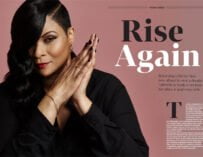
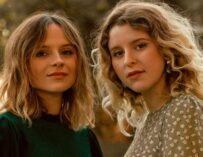
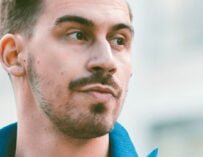
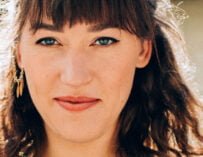

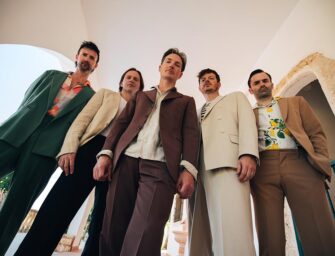
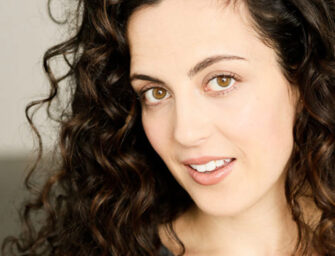
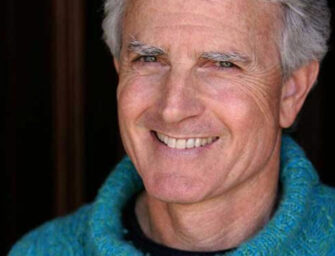























Related Articles